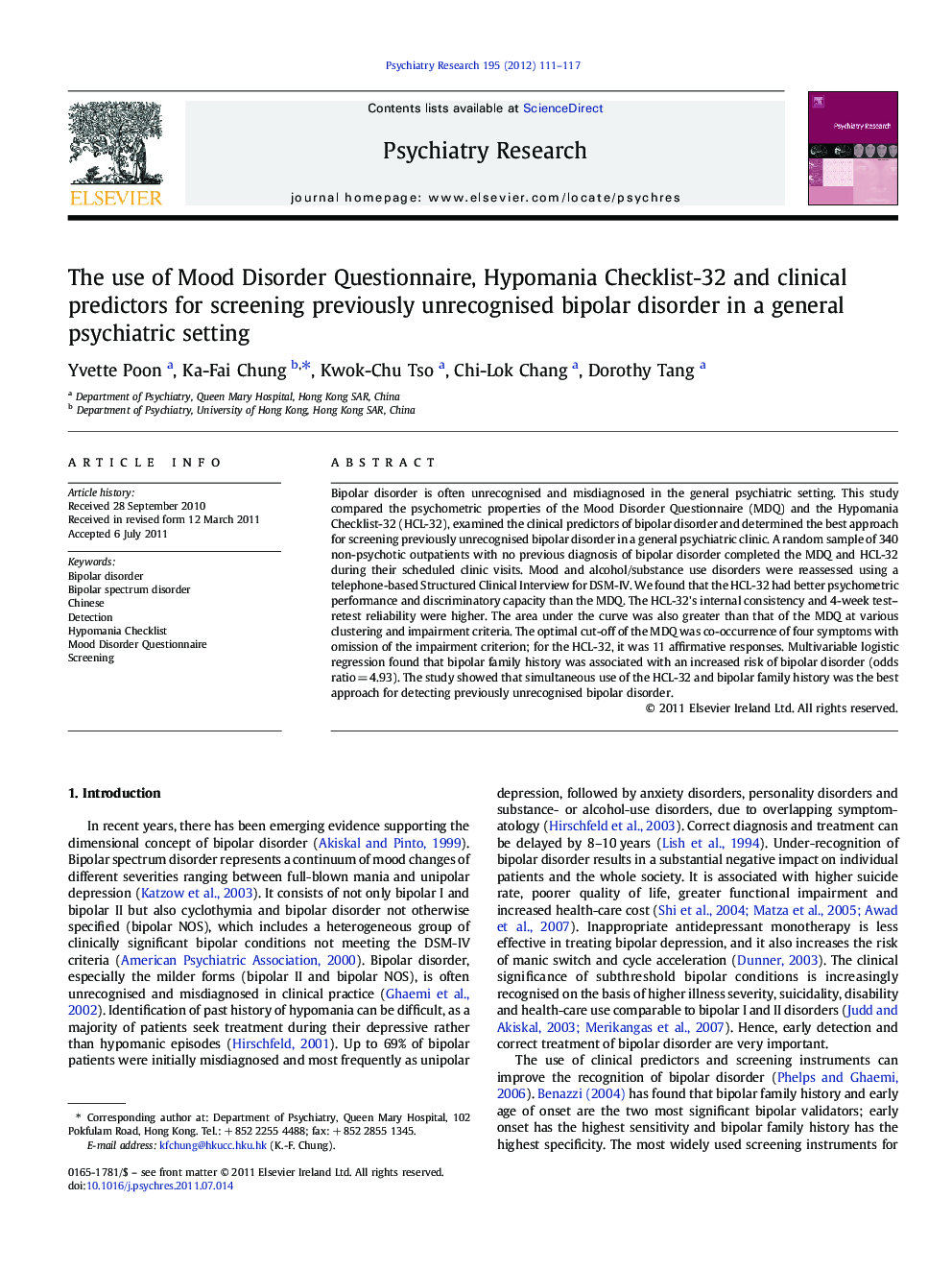| Article ID | Journal | Published Year | Pages | File Type |
|---|---|---|---|---|
| 333659 | Psychiatry Research | 2012 | 7 Pages |
Bipolar disorder is often unrecognised and misdiagnosed in the general psychiatric setting. This study compared the psychometric properties of the Mood Disorder Questionnaire (MDQ) and the Hypomania Checklist-32 (HCL-32), examined the clinical predictors of bipolar disorder and determined the best approach for screening previously unrecognised bipolar disorder in a general psychiatric clinic. A random sample of 340 non-psychotic outpatients with no previous diagnosis of bipolar disorder completed the MDQ and HCL-32 during their scheduled clinic visits. Mood and alcohol/substance use disorders were reassessed using a telephone-based Structured Clinical Interview for DSM-IV. We found that the HCL-32 had better psychometric performance and discriminatory capacity than the MDQ. The HCL-32's internal consistency and 4-week test–retest reliability were higher. The area under the curve was also greater than that of the MDQ at various clustering and impairment criteria. The optimal cut-off of the MDQ was co-occurrence of four symptoms with omission of the impairment criterion; for the HCL-32, it was 11 affirmative responses. Multivariable logistic regression found that bipolar family history was associated with an increased risk of bipolar disorder (odds ratio = 4.93). The study showed that simultaneous use of the HCL-32 and bipolar family history was the best approach for detecting previously unrecognised bipolar disorder.
